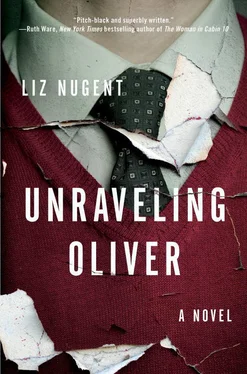Stanley Connolly shared all these things with me and, indeed, Stanley gave me my first glimpse of home life when I went to stay with his family on their farm in Kilkenny one time. I was surrounded by women for the first time. Stanley’s mother was a widow and he had three sisters. They terrified me. I had hit puberty and was barely in control of my hormones. I was tall and strong for my age and well able to do the farmwork, but in the evenings when the family would gather for dinner, the noise and chattering of the girls unnerved me. I felt somewhat as if I had been mistakenly locked into a cage of exotic animals in the zoo.
They were incredibly kind and generous to me, and I know now that the girls were openly flirting with me and I should have been delighted with the attention, but I felt that the devotion was unwarranted, that any minute they would discover that I was a fraud, that they would realize a boy who didn’t deserve a mother couldn’t belong in a family, blessed among women. I imagined that, like some unfamiliar species, they might all turn on me. Kill me. Eat me. I don’t like cats for the same reason.
Stanley’s mother constantly fussed over me. She wanted to know what my favorite food was, and my uncultured palate betrayed me because I really only knew meals by the days of the week. Mondays: bacon and cabbage; Tuesdays: sausages and mashed potato; and so on. Eating real butter, home-baked bread, and fresh meat and vegetables on unscheduled days made me uncomfortable. In school, we had fish on Fridays and that was my preference. “What kind of fish?” she asked, and I couldn’t tell her but said that it was white, triangular shaped, and usually about four inches long. Mrs. Connolly laughed, but I could see that she was sad for me, and from then on she set about awakening my taste buds, which, while sweet and generous, only made me uneasier. I knew my manners and ate everything that was served, but my stomach was so unused to such richness that sometimes, at night, cramps would keep me awake until the small hours. On one of those nights, I resolved that I would learn about food when I was properly grown up and that I wouldn’t be embarrassed again.
I didn’t realize the extent of my institutionalization, but I was self-conscious about being the object of their pity, or admiration, or whatever it was, and when my father ordered me to leave, I was almost relieved to do so. Stanley was a witness to my poverty and my isolation, and I think he knew more about my circumstances than I told him. This embarrassed me, so I didn’t make much of an effort to keep in touch with him when I left that school, not until I got married and had my first success with a book and had the proof that I was not a failure, but by then years had passed and we had little in common beyond the memory of shared slingshots.
Many years ago, I went into town for a meeting with a publicist and I was early. It was a beautiful, warm summer’s day, and I decided to take a walk through St. Stephen’s Green. As I passed the children’s playground, I saw Stanley pushing a little boy on a swing. The likeness was extraordinary, though the little boy was not cursed with the facial discoloration of his father. Stanley was older now and there were flecks of gray in his hair, which he still wore long in the front in a futile attempt to cover the mark.
Stanley couldn’t take his eyes off his son, as if he couldn’t believe his luck. He and the boy were in their own world, oblivious to this strange man watching. The boy threw his head back and laughed a hearty cackle as he swung ever higher, and I wanted to be him more than anybody else in the world. Just for a moment, to exult in a father’s love and attention. Then the boy stopped the swing, scuffing his little sandals into the gravel to apply the brakes. He jumped off and ran to a red-haired lady sitting on a bench nearby. Her lipsticked mouth grinned at the boy and she scooped him up into her arms and he buried his face into the soft slope of her neck. I felt only envy.
I heard a loud cough right behind me, and when I turned to see a park keeper in a soiled uniform glaring at me, I realized how it must appear—an adult solo male mesmerized by the children’s playground. We each thought of each other as a sick bastard, and, incensed, I left immediately, stopping for a swift Jameson in Peter’s Pub to steady my cuff-buttoning hands before my meeting.
Perhaps I should have had children with Alice, but I knew that any child would only remind me of a small French boy so full of charm and mischief, and long dead. I might even have been a father figure to Alice’s brother Eugene, but something told me that if my father had so strongly disapproved of me, a strong and handsome and successful young man, then Eugene, an overweight mental defective, would have appalled him.
St. Catherine’s House
Patient No. 114
Annual Report: 17/12/1987
Name: Eugene O’Reilly
Date of Admission: 22/07/1987
DOB: 17/05/59
Height: 5 foot 8 inches
Weight: 224 lbs
Hair: Brown
Eyes: Blue
Mental Capacity: Eugene is of limited intellect with an estimated mental age of seven or eight years. He can’t read or write, although he likes to have books in his possession, and needs help dressing himself (buttons, laces). He can feed himself, although he must be watched at mealtimes, as he will not stop eating until food is removed from him. Most of the time he can perform his toilet tasks without assistance. He has little interest in television but loves music, although his physical reaction to music can be upsetting to other residents. Eugene is unaware of his own strength and size.
History: Eugene O’Reilly was admitted in July of this year by his brother-in-law, Oliver Ryan (the author Vincent Dax). Eugene was in good general health, although Nurse Marion reported some bruising to the upper arms and body. These marks were explained by Mr. Ryan, who said that Eugene had often to be restrained after episodes of aggression. Mr. Ryan very much regretted the incidents that led to these bruises but suggested that he had little choice in the matter, as Eugene was not capable of controlling his temper. Mr. Ryan reported that Eugene had become violent and difficult since the death of Eugene’s mother in 1986 and that he could no longer be cared for in the family home, particularly in the light of a recent arson attempt that Mr. Ryan insists was malicious. It was notable that there seemed to be some difference of opinion on this issue between Mr. Ryan and his wife, the patient’s sister, Alice Ryan. Mr. Ryan maintains that his wife is unrealistic about Eugene’s abilities and propensity to violent outbursts.
Assessment: In adults with the type of moderate to severe learning difficulties Eugene presents, violence and aggression are unusual, but clearly Mr. Ryan was correct in his assessment of Eugene, as he has displayed extreme aggression in his objection to being left in our care, and unfortunately two of our porters were required to take Eugene to the lockdown unit after Mr. Ryan left. Eugene has had great difficulty settling in to St. Catherine’s and has caused major disruption among other residents. In particular, he attempts to pick up other residents while they are seated, running the length of hallways, holding them high above his head within their chairs. While this may be a source of amusement to some residents, to others it is terrifying and we cannot allow the health and safety of any of our patients to be jeopardized. Eugene has been reprimanded for this activity on several occasions and has reacted belligerently when physically restrained. Although we are reluctant to medicate Eugene to subdue his boisterous nature, it has become our only option.
Читать дальше












